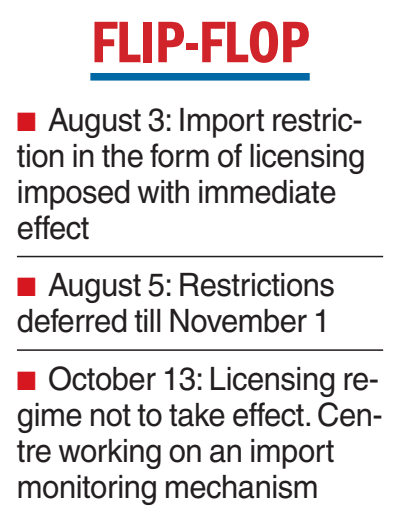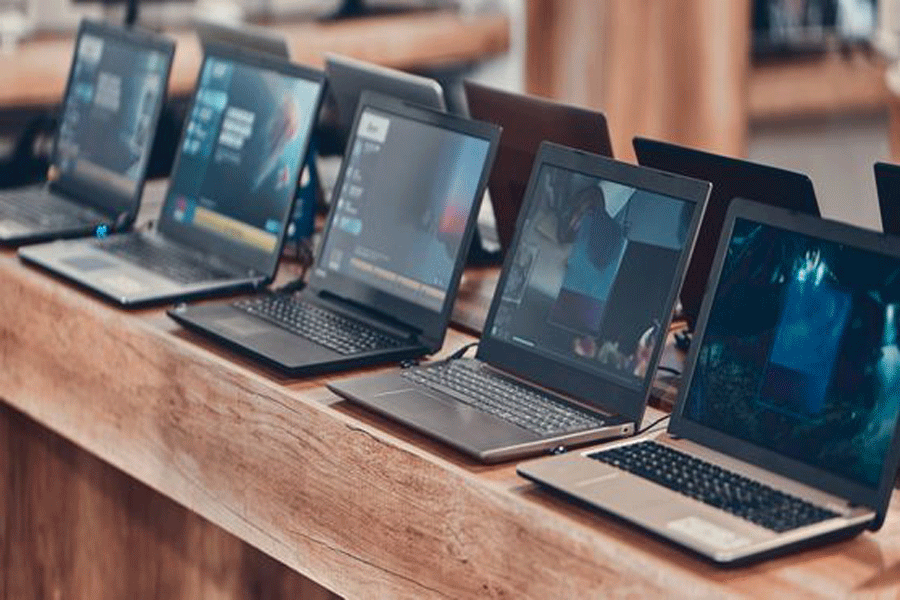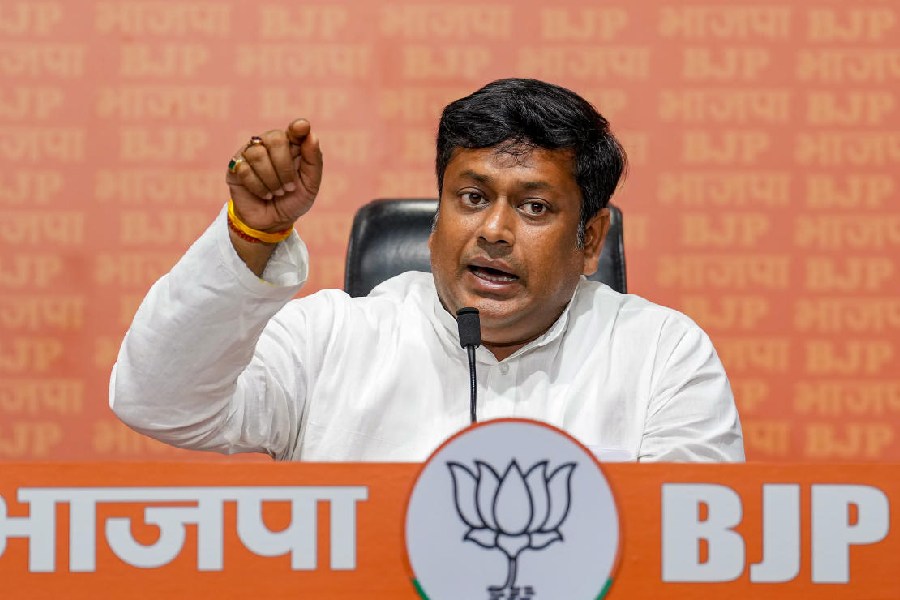In a policy flip-flop, the Centre on Friday said it will not impose the licensing requirement on the imports of laptops and computers but will only monitor their inbound shipments.
The decision on licensing was criticised by the industry and the US.
The remarks assume significance as the government in August announced that these products, including laptops, tablets and computers, would be put under a licensing regime from November 1.
"On laptops, we are of the view that there are no restrictions as such. We are only saying that somebody who is importing these laptops, has to be under close watch so that we can look at these imports," commerce secretary Sunil Barthwal told reporters here.
"It is basically monitoring, which we are doing. It has nothing to do with restrictions as such."
Director General of Foreign Trade (DGFT) Santosh Kumar Sarangi said there will be an import management system, which will come into place from November 1.
The work is in progress and hopefully, it will be in place before October 30, he said.
The government in August imposed import restrictions on laptops, computers (including tablet computers), microcomputers, large or mainframe computers, and certain data processing machines to boost domestic manufacturing and cut imports from countries such as China.
While the IT hardware product industry comes under MeitY, the DGFT notifies decisions about import/export of a product.
The import licensing regime aimed to "ensure trusted hardware and systems" enter India, but it was delayed by three months after objections from the industry and criticism by Washington. It would affect companies such as Dell, HP, Apple, Samsung and Lenovo.
Following this notification, the IT hardware industry had flagged concerns.
India already has an import monitoring system for certain products like steel, coal and paper.
The licensing conditions on imports were put on the grounds of security and to spur domestic manufacturing of these products.
India imported $5.33 billion of personal computers, including laptops, in 2022-23
against $7.37 billion in 2021-22.
According to the Global Trade Research Initiative, India is critically dependent on China for day-to-day use and industrial products such as mobile phones, laptops, components, solar cell modules, and integrated circuits.
Export dip
India's exports fell 2.6 per cent to $34.47 billion in September, while imports were down 15 per cent at $53.84 billion for the month.
The trade deficit fell 31 per cent to $19.37 billion because of the slowdown in global demand.











